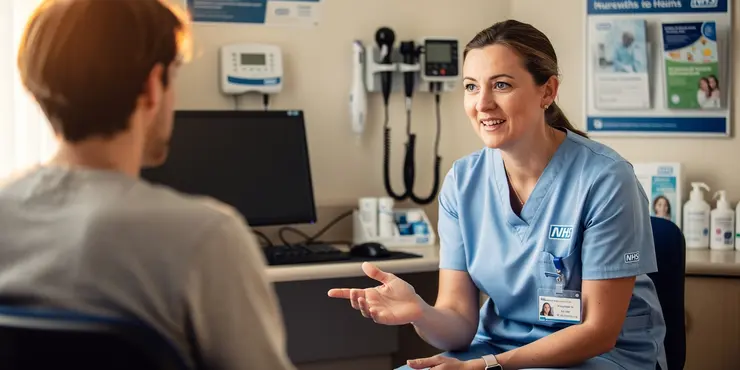
Find Help
More Items From Ergsy search
-
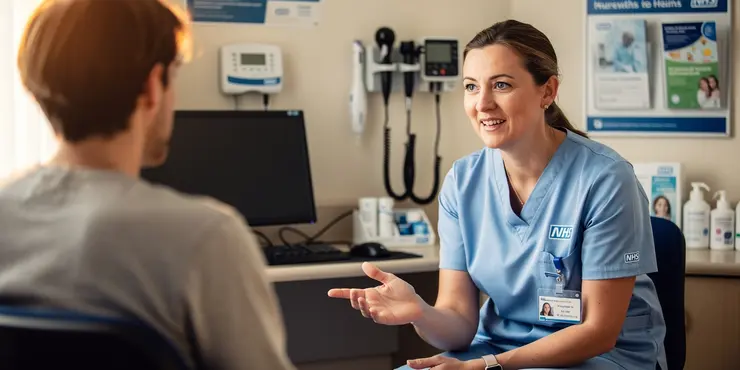
What is Rubella?
Relevance: 100%
-
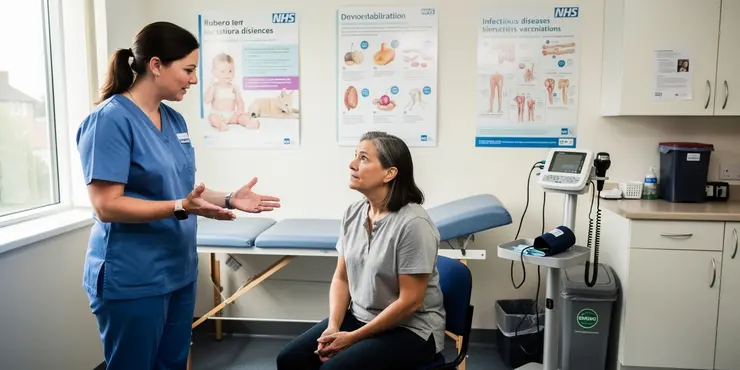
How serious is Rubella?
Relevance: 95%
-
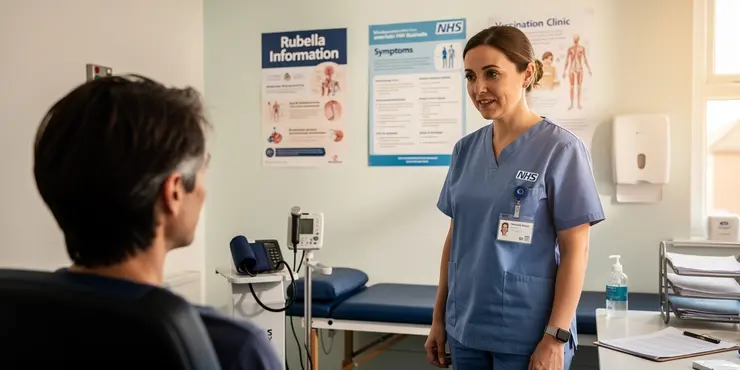
What are the symptoms of Rubella?
Relevance: 95%
-
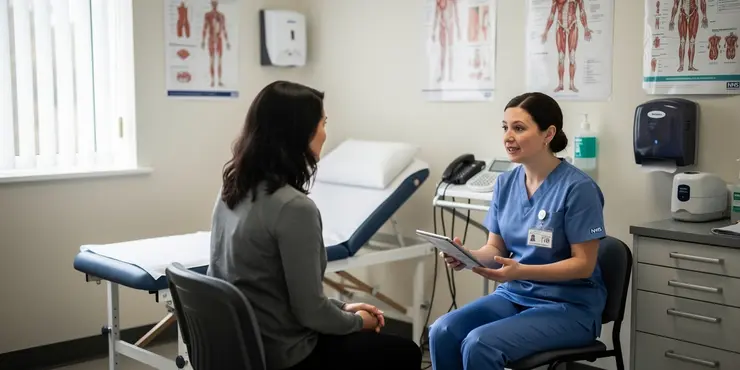
How is Rubella transmitted?
Relevance: 95%
-
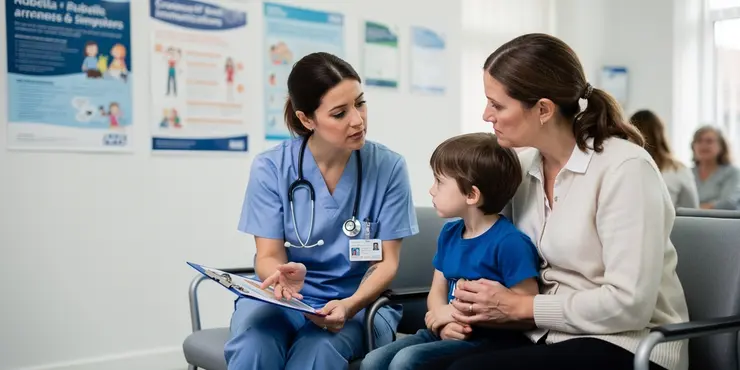
Is Rubella the same as measles?
Relevance: 95%
-
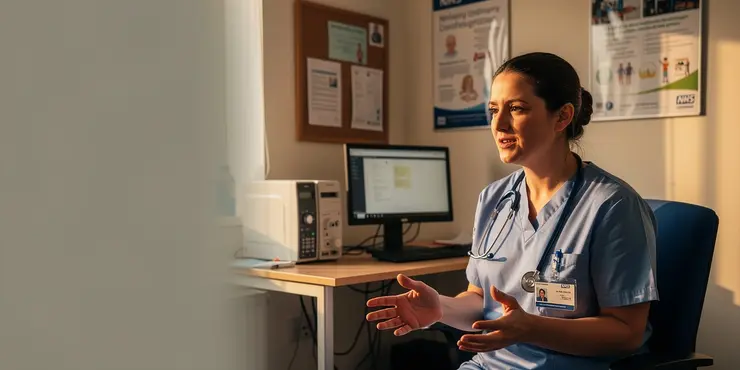
How is Rubella diagnosed?
Relevance: 94%
-
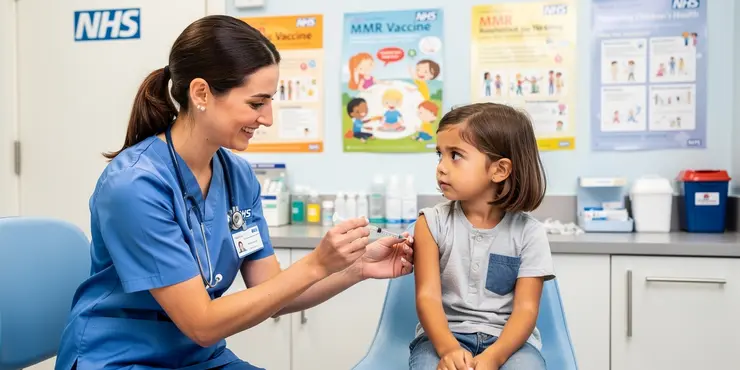
Can Rubella be prevented?
Relevance: 92%
-
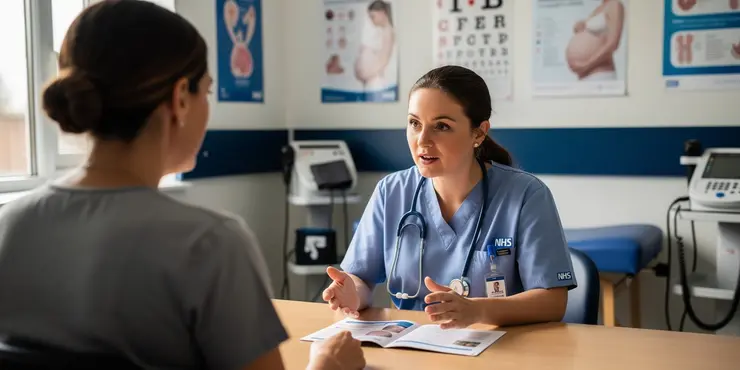
What is congenital rubella syndrome?
Relevance: 90%
-
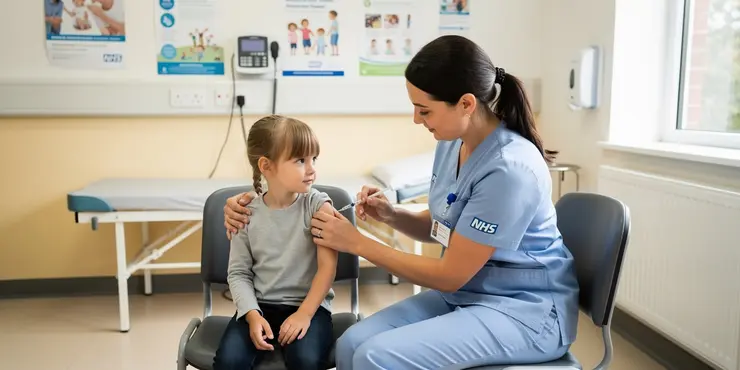
Who should receive the Rubella vaccine?
Relevance: 87%
-
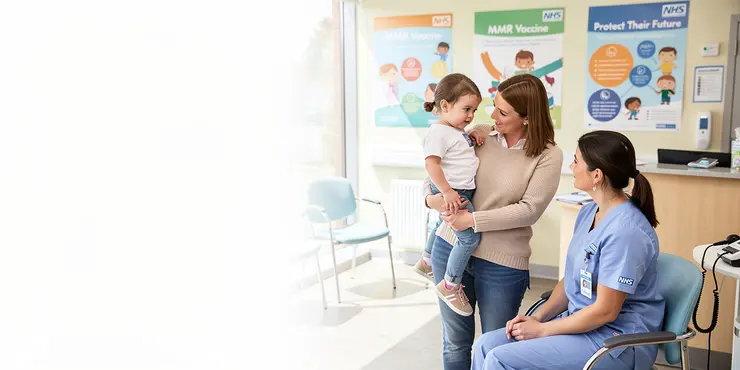
What is the MMR vaccine?
Relevance: 37%
-
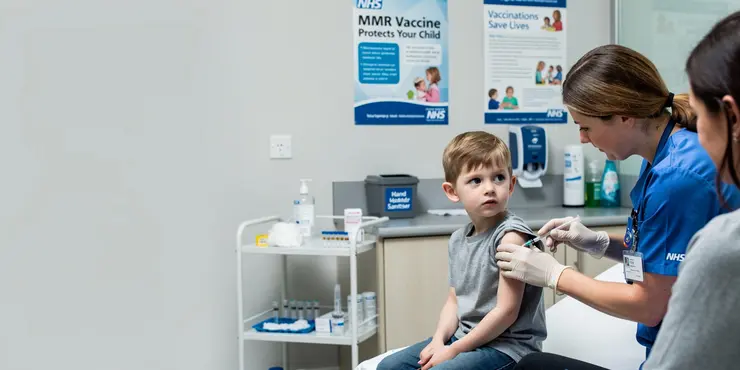
How effective is the MMR vaccine?
Relevance: 35%
-
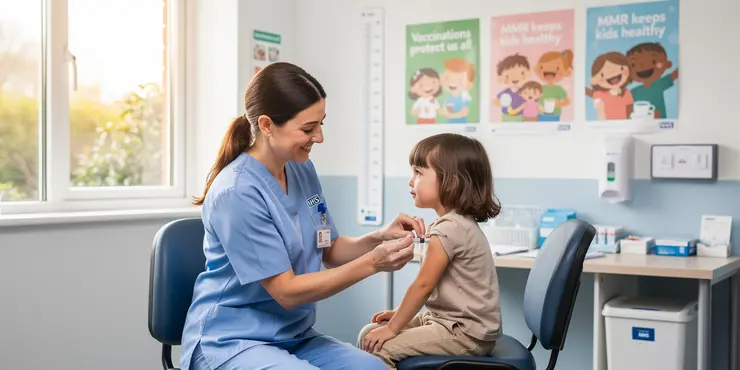
How effective is the MMR vaccine?
Relevance: 34%
-
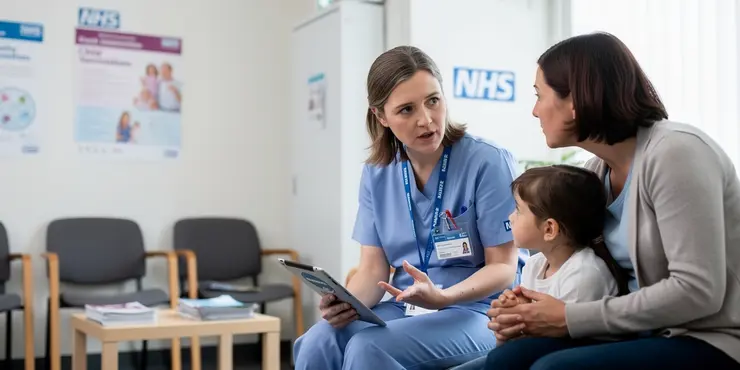
Who should receive the MMR vaccine?
Relevance: 30%
-
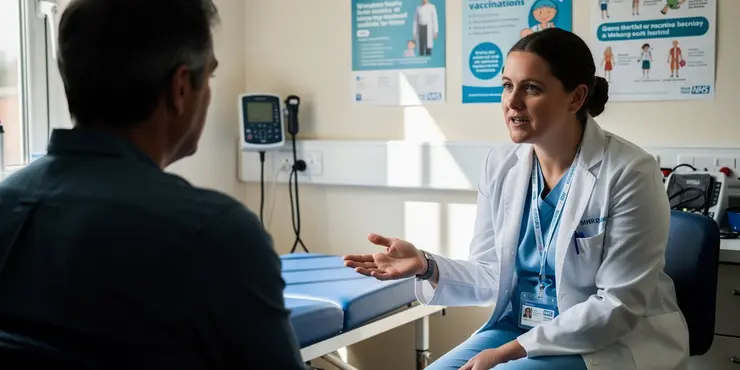
Can adults receive the MMR vaccine?
Relevance: 24%
-
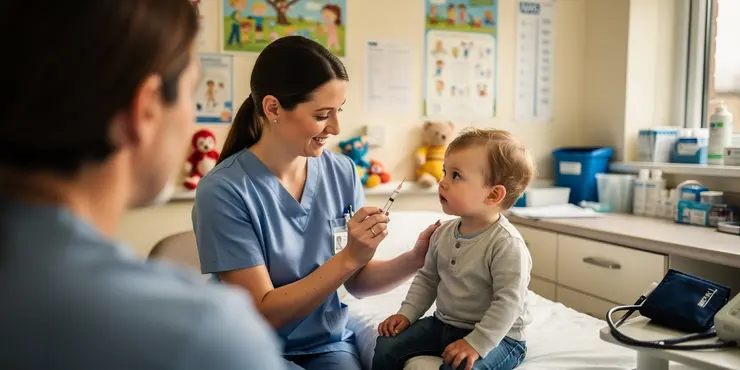
At what age is the MMR vaccine given in the UK?
Relevance: 23%
-
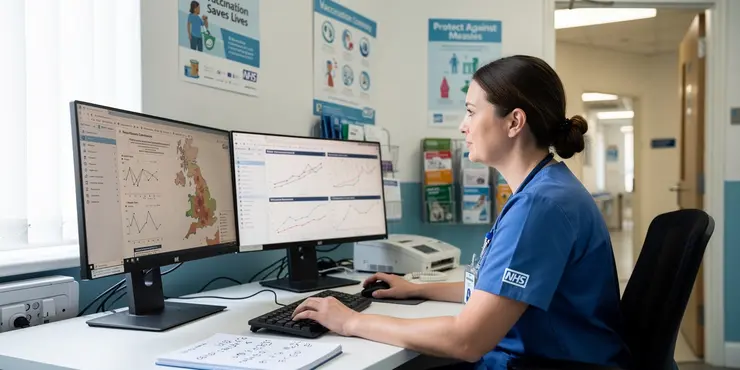
How does the UK monitor measles outbreaks?
Relevance: 23%
-
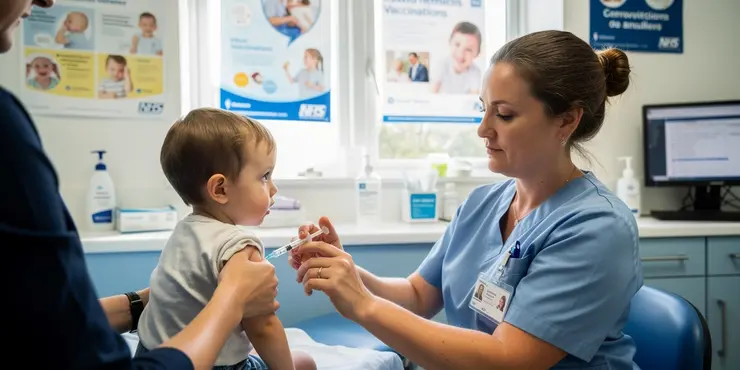
At what age should children receive the MMR vaccine?
Relevance: 22%
-
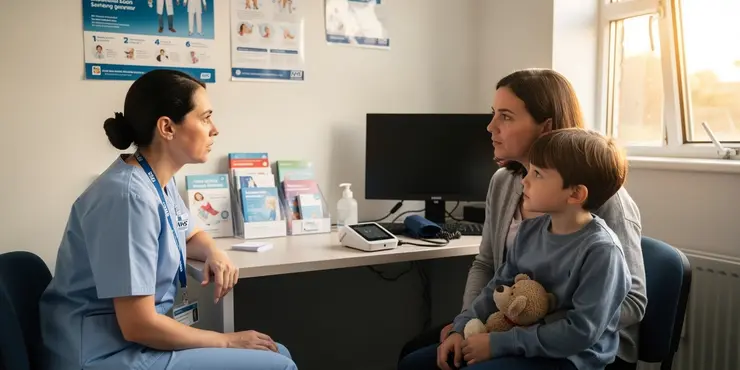
Are measles outbreaks common in the UK?
Relevance: 20%
-
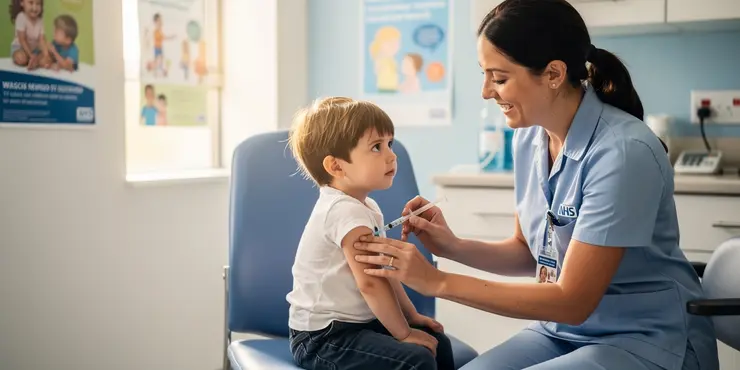
What is the current measles vaccination coverage in the UK?
Relevance: 20%
-
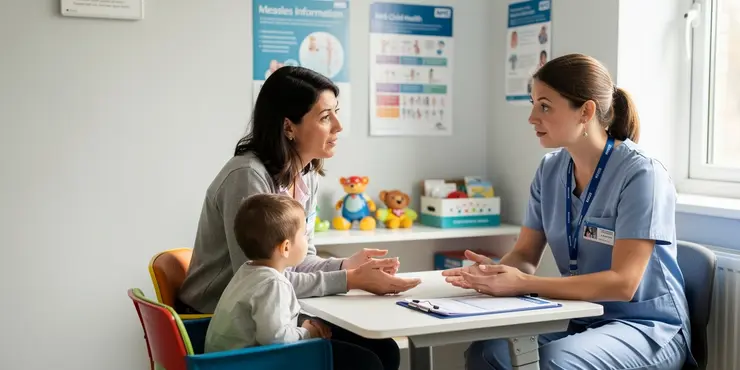
Is there a treatment for measles?
Relevance: 19%
-
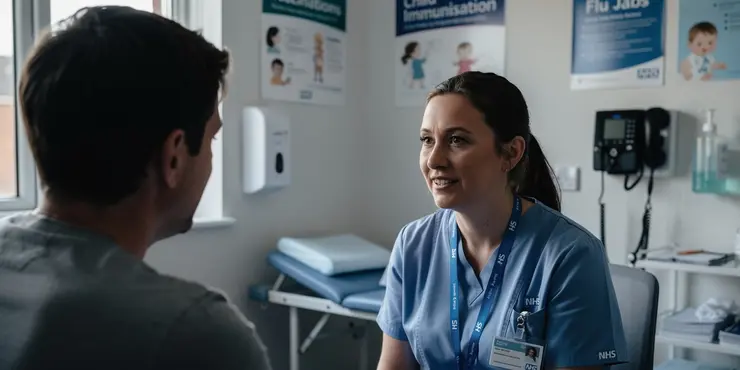
Why is measles less common in the UK?
Relevance: 19%
-
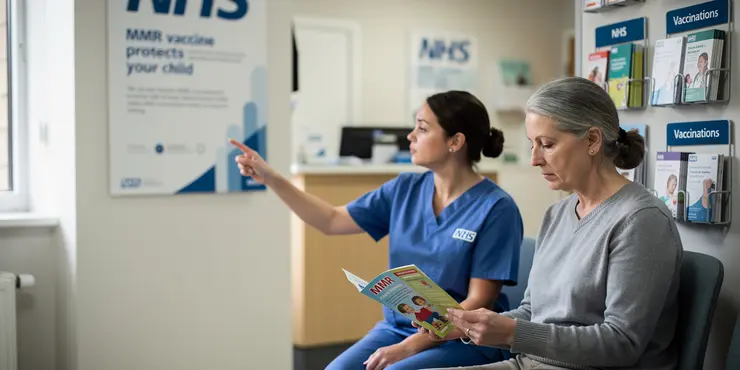
Are measles cases rising in the UK?
Relevance: 18%
-
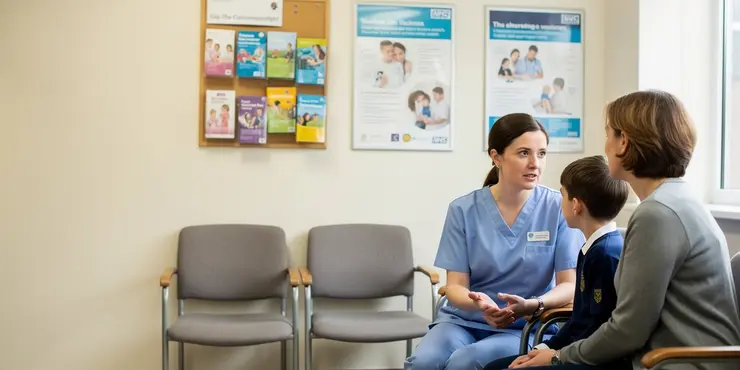
How can measles be prevented?
Relevance: 18%
-
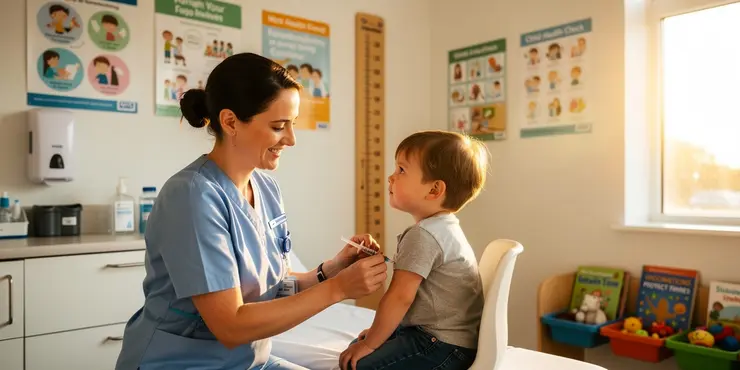
What is a live-attenuated vaccine?
Relevance: 18%
-
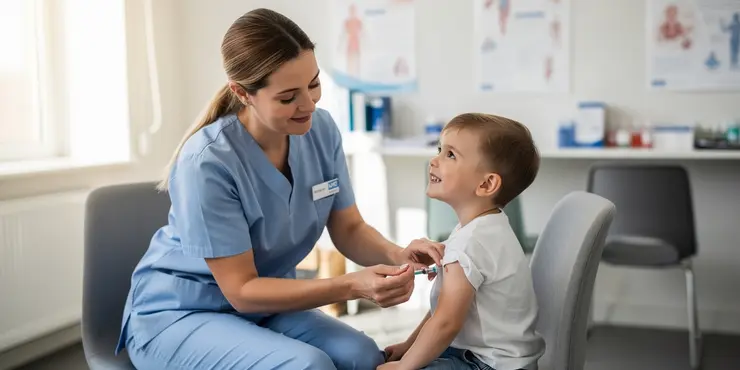
Children's Vaccination Schedule
Relevance: 17%
-
Is there a treatment for measles?
Relevance: 17%
-
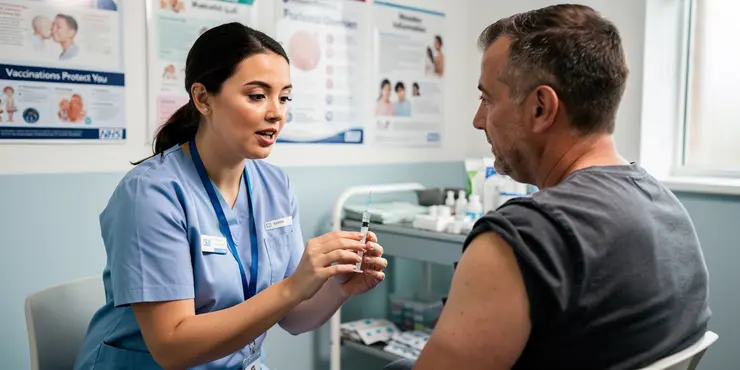
Can the measles vaccine be given to adults?
Relevance: 17%
-
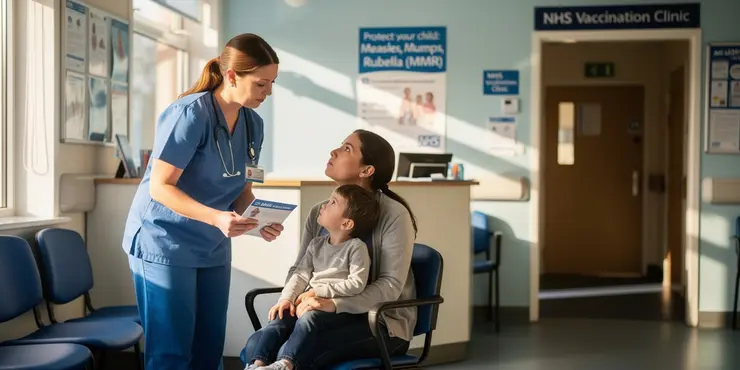
Are measles cases currently rising in the UK?
Relevance: 17%
-
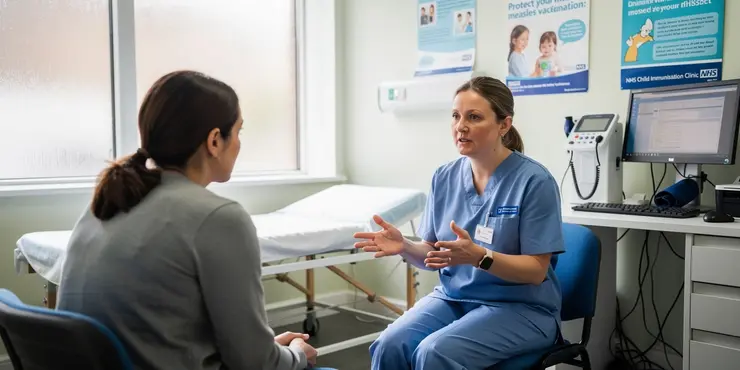
Can measles be serious?
Relevance: 17%
-
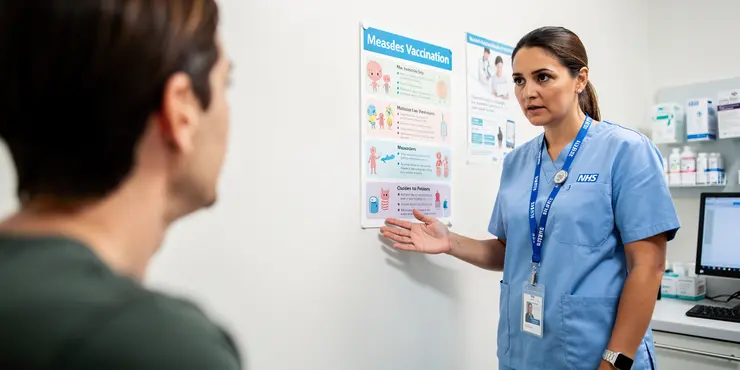
Are measles more common outside of the UK?
Relevance: 17%
-
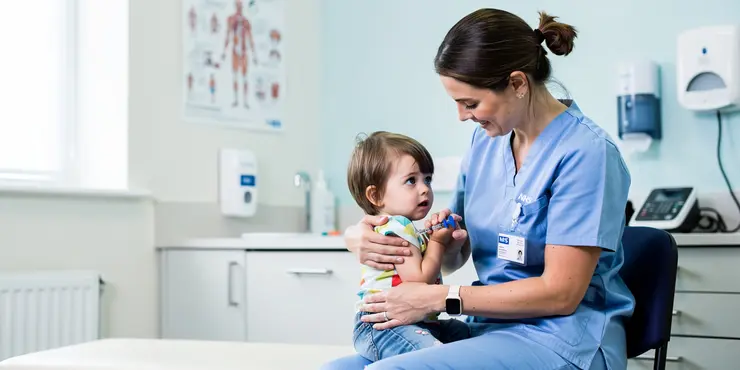
Can measles cause complications?
Relevance: 17%
-
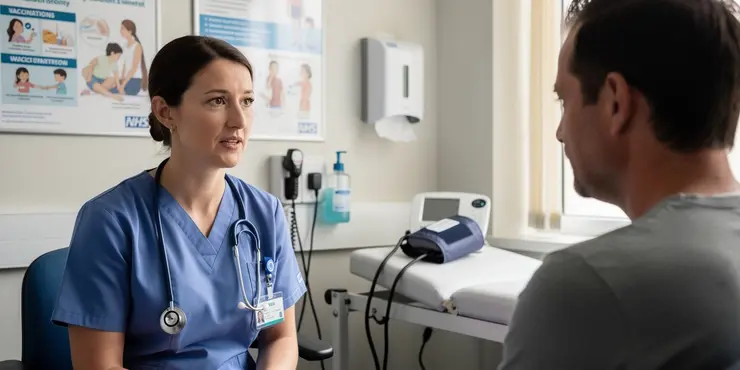
How is measles transmitted?
Relevance: 17%
-
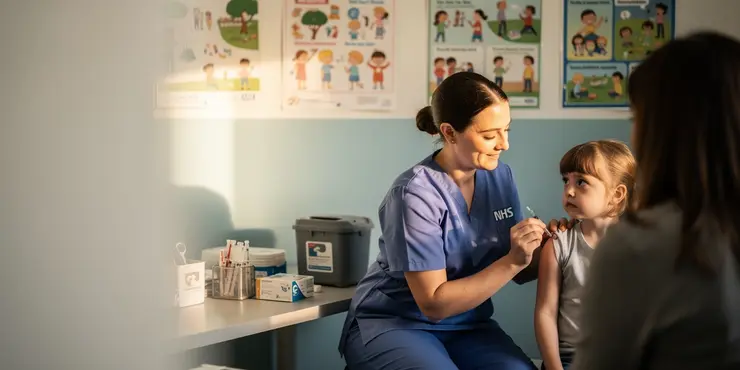
Measles
Relevance: 17%
-
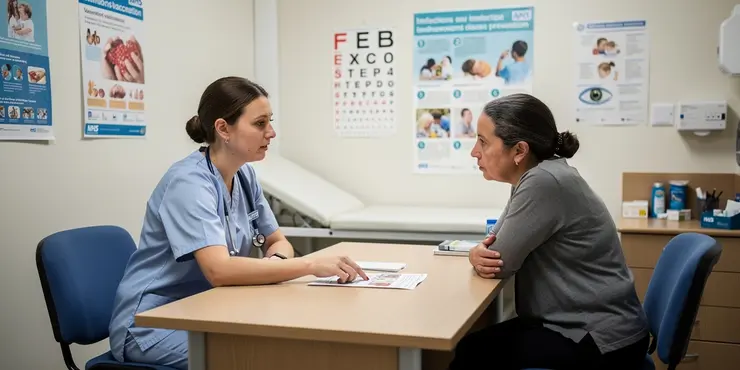
What should you do during a measles outbreak?
Relevance: 16%
-
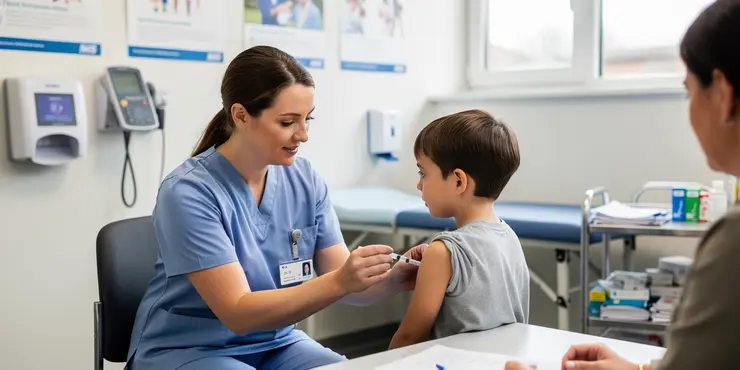
Can you get measles more than once?
Relevance: 16%
-
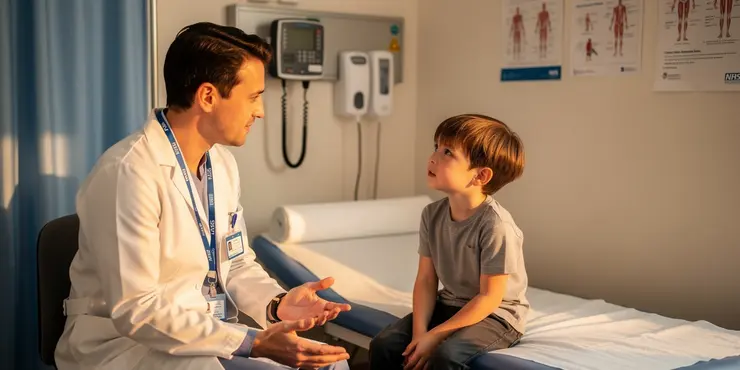
Why are measles outbreaks still occurring?
Relevance: 16%
-
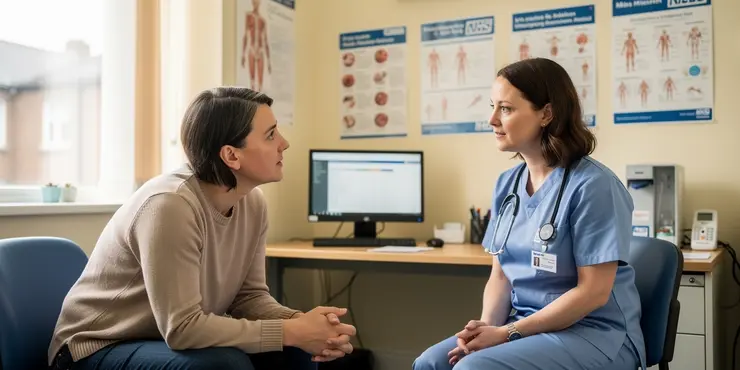
What should I do if I suspect I have measles?
Relevance: 16%
-
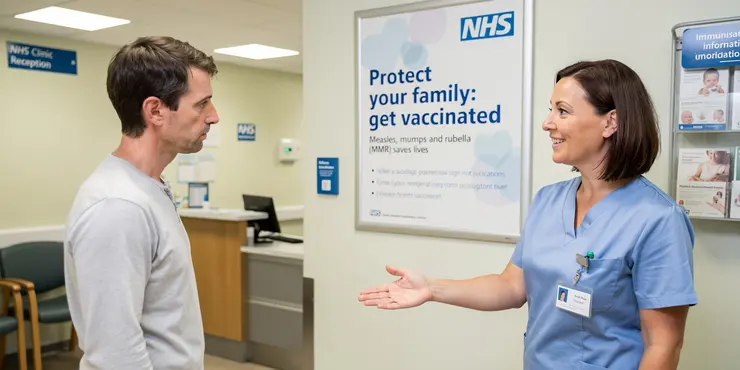
What is causing the rise in measles cases in the UK?
Relevance: 16%
-
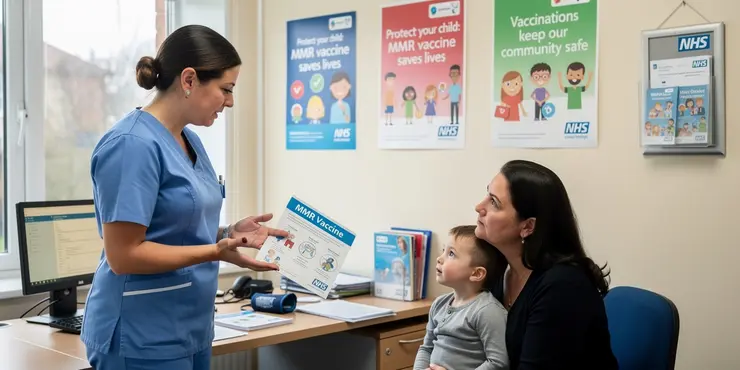
Why has the UK lost its measles elimination status?
Relevance: 16%
-
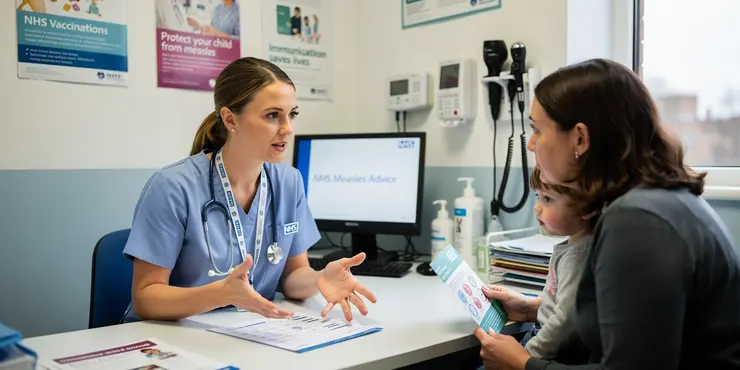
How is measles spread?
Relevance: 16%
What is Rubella?
Rubella, also known as German measles, is a contagious viral infection best known for its distinctive red rash. Though similar in some ways to measles, rubella is caused by a different virus and is generally a milder disease. It primarily affects the skin and lymph nodes, and is most dangerous if contracted by pregnant women as it can cause serious consequences for the unborn child.
Symptoms of Rubella
The symptoms of rubella are often mild and can sometimes be hard to notice, especially in children. The characteristic symptom is a red-pink rash that usually starts on the face before spreading to the rest of the body. Other symptoms may include a mild fever, swollen lymph nodes, a runny or stuffy nose, a headache, and aching joints, particularly in young women. Symptoms typically appear two to three weeks after exposure to the virus and can last about three days.
Transmission and Contagion
Rubella is caused by the rubella virus and is spread through direct contact with an infected person's respiratory secretions, such as mucus and saliva. It can also be transmitted from a pregnant woman to her developing baby through the bloodstream. People with rubella are most contagious from a week before to a week after the rash appears. The virus can spread quickly in unvaccinated populations, leading to outbreaks.
Vaccination and Prevention
Rubella can be effectively prevented through vaccination. In the UK, the measles, mumps and rubella (MMR) vaccine is routinely given to children. This vaccine is highly effective and has successfully reduced the incidence of rubella in many countries. Two doses of the MMR vaccine are recommended for long-lasting protection. Besides vaccination, preventive measures include maintaining good hygiene practices such as covering the mouth and nose when sneezing or coughing, washing hands frequently, and avoiding close contact with infected individuals.
Complications of Rubella
While rubella is generally a mild illness, complications can occur. The most serious risk associated with rubella is congenital rubella syndrome (CRS), which can occur when a woman contracts rubella during pregnancy, especially in the first trimester. CRS can lead to serious birth defects such as heart problems, developmental delays, and hearing and vision impairments. This is why vaccination and prevention of rubella in women of childbearing age is particularly important.
Conclusion
Rubella is a preventable disease with a comprehensive vaccination program being the most effective way to combat and control its spread. Due to its mild symptoms, it can go unnoticed, but the potential impact on unborn children makes it a significant public health concern. Continued vigilance and vaccination efforts are crucial to protect both individuals and communities from this once widespread infection.
What is Rubella?
Rubella is also called German measles. It is a virus that can spread easily. Rubella is known for causing a red rash. It is milder than regular measles because it is a different virus. Rubella affects the skin and lymph nodes. It can be very dangerous for pregnant women because it can harm their unborn babies.
Symptoms of Rubella
Rubella symptoms are usually mild and can be hard to notice. The main symptom is a red or pink rash. This rash starts on the face and then spreads to the body. Other symptoms are a mild fever, swollen glands, runny or blocked nose, headache, and sore joints, especially in young women. Symptoms show up about 2 to 3 weeks after catching the virus and last about 3 days.
Transmission and Contagion
Rubella spreads through the rubella virus. You can catch it by close contact with a sick person’s saliva or mucus. A pregnant woman can also pass it to her baby through the blood. People with rubella can spread it from 1 week before to 1 week after the rash appears. It can spread quickly if people are not vaccinated.
Vaccination and Prevention
The best way to stop rubella is by getting a vaccine. In the UK, children get the MMR vaccine, which protects against measles, mumps, and rubella. This vaccine works very well and has reduced rubella cases. Two MMR shots give strong and long-lasting protection. To prevent rubella, it is also important to wash your hands often, cover your mouth and nose when you sneeze or cough, and stay away from sick people.
Complications of Rubella
Rubella is usually mild, but sometimes it causes problems. The biggest worry is when a pregnant woman catches rubella. This can lead to congenital rubella syndrome (CRS) in her baby. CRS can cause serious problems like heart defects, slow development, and hearing or vision loss. This is why it is important for women who can have babies to be vaccinated.
Conclusion
You can stop rubella with vaccines. Rubella often does not show strong symptoms, but it can seriously affect unborn babies. Staying careful and getting vaccinated helps keep people and communities safe from rubella.
Frequently Asked Questions
What is Rubella?
Rubella, also known as German measles, is a contagious viral infection best known for its distinctive red rash.
How is Rubella transmitted?
Rubella is transmitted through respiratory droplets from an infected person's cough or sneeze.
What are the symptoms of Rubella?
Symptoms typically include a red rash, fever, sore throat, and swollen lymph nodes.
Is Rubella the same as measles?
No, Rubella is a different virus than the one that causes measles, though the diseases share some symptoms.
How serious is Rubella?
Rubella is usually mild in children and adults, but it can cause serious complications if a woman is infected during pregnancy.
Can Rubella be prevented?
Yes, Rubella can be effectively prevented with the MMR vaccine, which also protects against measles and mumps.
Who should receive the Rubella vaccine?
The CDC recommends that children, teenagers, and adults who have not been vaccinated or have not had Rubella should receive the MMR vaccine.
What is congenital rubella syndrome?
It is a condition that occurs in infants whose mothers were infected with Rubella during pregnancy, potentially leading to serious birth defects.
How is Rubella diagnosed?
Rubella is diagnosed through a combination of clinical examination and laboratory tests, such as blood tests to detect Rubella antibodies.
What is the treatment for Rubella?
There is no specific treatment for Rubella; management involves relieving symptoms and supportive care.
How long does the Rubella virus remain infectious?
An infected person is usually contagious from about a week before to a week after the rash appears.
Can Rubella cause complications?
While rare, complications can include arthritis in adults and encephalitis. In pregnant women, Rubella can lead to miscarriage or congenital rubella syndrome in the baby.
What countries still have issues with Rubella?
While Rubella has been eliminated in many countries with widespread vaccination, outbreaks can still occur in places with low vaccination coverage.
Can Rubella be eradicated?
Eradication is possible with high vaccination coverage and surveillance, similar to efforts undertaken for measles.
Are there side effects of the Rubella vaccine?
Most people have no side effects. Some may experience mild fever or rash, or temporary joint pain.
How effective is the Rubella vaccine?
The MMR vaccine is highly effective, with one dose being approximately 97% effective at preventing Rubella.
Why is Rubella known as 'German measles'?
It is called German measles because the disease was first described by German physicians in the 18th century.
Can adults get Rubella?
Yes, adults who are not vaccinated or have not had Rubella can contract the disease.
What should pregnant women know about Rubella?
Pregnant women should ensure they are immune to Rubella before pregnancy to avoid complications such as congenital rubella syndrome.
What should someone do if they suspect they have Rubella?
They should contact a healthcare provider for diagnosis and to discuss appropriate care, and they should avoid contact with pregnant women.
What is Rubella?
Rubella is a sickness. It is also called German measles. It can make people feel unwell.
Rubella can cause a rash. It might make you feel like you have a cold, with a runny nose or a sore throat.
Most people get better without any problems. But rubella can be dangerous for pregnant women and their babies.
If you think you have rubella, it is good to see a doctor.
Tools that might help you understand better:
- Ask someone you trust to explain.
- Look at pictures or videos about rubella.
- Use simple apps or websites that talk about sicknesses.
Rubella is also called German measles. It is a sickness that can spread from one person to another. It is a virus. People know it because it gives you a red rash on your skin.
How does Rubella spread?
Rubella can spread from one person to another. It happens when someone with Rubella coughs or sneezes. Tiny droplets with the virus go into the air. If you breathe them in or touch something with the virus on it, you can get sick.
Here are some tips to stay healthy:
- Wash your hands often with soap and water.
- Do not touch your face a lot with unwashed hands.
- Stay away from people who are sick.
If you have trouble reading, ask a friend or family member for help. You can also use apps that read text out loud.
Rubella spreads when someone sick coughs or sneezes.
What happens if you get Rubella?
If you get Rubella, you might feel sick. Here are some things you might notice:
- A red rash that starts on your face and spreads.
- You might have a fever, which means your body feels hot.
- You could have a headache.
- Your joints may hurt.
- You might feel tired.
- Your eyes might be red and sore.
If you feel this way, tell a grown-up, like a parent or teacher. They can help you see a doctor.
It's good to talk to someone if you're worried. Drawing or writing about how you feel can also help.
Signs of this illness usually are a red rash, high temperature, sore throat, and swollen lumps in the neck.
Are Rubella and Measles the Same?
No, Rubella and Measles are not the same.
Rubella is sometimes called "German measles," but it is a different disease.
Both diseases can cause a rash and fever. But they are caused by different viruses.
If you need help reading, you can use a screen reader or ask someone to read it for you.
No, rubella is a different virus than measles. But both diseases can have some of the same symptoms.
Is Rubella a Big Problem?
Rubella is usually not too bad for kids and grown-ups. But if a woman gets rubella while she is going to have a baby, it can be very serious.
Can we stop Rubella?
Yes, we can stop Rubella with a vaccine. A vaccine is like a shield for your body. It helps keep you safe from getting sick.
Ask your doctor about the MMR vaccine. It stops Measles, Mumps, and Rubella. It helps keep you healthy.
It is important to get the vaccine because it stops you from catching Rubella. It also helps stop others from catching it too.
If you have questions, ask someone you trust. They can help you understand.
There are apps and websites that can help you learn more. Ask your parents or a teacher to help you use them.
Yes, we can stop Rubella with a vaccine called MMR. This vaccine also stops measles and mumps.
Who should get the Rubella vaccine?
The Rubella vaccine helps prevent a disease called Rubella, which can make people sick.
Here’s who should get the Rubella vaccine:
- Children: Kids should get the vaccine when they are 1 year old and again when they are 4-6 years old.
- Adults: If you didn’t get the vaccine as a child, you should talk to a doctor about getting it.
- Women: Women who want to have babies should get the vaccine before they get pregnant. This keeps the baby safe from Rubella.
Using pictures or talking to a helper can also make it easier to understand.
The CDC says kids, teens, and grown-ups who haven’t had the Rubella shot need to get the MMR shot.
What is congenital rubella syndrome?
Congenital rubella syndrome (CRS) happens when a baby is born with health problems because the mother had rubella (also called German measles) during pregnancy. This can cause serious issues for the baby, like heart problems, hearing loss, and vision problems.
Helpful tools: Picture books or diagrams can help explain CRS. Listening to audio stories about rubella can also be useful. Always feel free to ask a doctor or nurse if you have questions.
This happens to babies whose moms got sick with Rubella while pregnant. It can cause big health problems for the baby.
How do doctors find out if you have Rubella?
Doctors find out if you have rubella by checking you and doing a blood test. The blood test looks for special signs, called antibodies, that tell if rubella is in your body.
How do you treat Rubella?
There is no special medicine to cure Rubella. But, doctors can help with the symptoms and make the person feel better.
How long can you catch the Rubella virus from a person?
The Rubella virus can be spread from someone who has it. You can catch it from them for a few days before they get a rash. You can also catch it for a few days after the rash goes away.
To help understand better, you can use tools like text-to-speech apps or ask someone to read with you.
A person who is sick can spread germs to others. This happens about one week before and one week after they get a rash.
Can Rubella cause problems?
Rubella, or German measles, can sometimes cause health problems.
If a pregnant woman catches Rubella, her baby can have problems.
Some people might feel very sick or have spots on their skin.
To understand more, you can ask a doctor or use books with pictures.
Sometimes, people can get other problems from rubella. Adults might get sore joints. Some people can get a serious illness in the brain. If a pregnant woman gets rubella, she might lose her baby, or the baby might be born with health problems.
Which countries still have problems with Rubella?
Rubella is a virus that can make people sick. It is important to know which countries still have this problem. If you want to learn more, you can look at maps online or talk to a doctor who knows about Rubella.
Here are some things that can help:
- Use pictures or maps to see where Rubella is a problem.
- Ask a teacher or parent to explain more about Rubella.
- Watch videos that talk about how to stay healthy and safe from Rubella.
Rubella is a disease. In many places, people don't get it anymore because they get a shot to stop it. But in some places where not many people get the shot, people can still get Rubella.
Can We Get Rid of Rubella Forever?
Rubella is a disease caused by a virus. Some people think we can make it go away forever. Here is how:
- Vaccines: Vaccines help our bodies fight the virus. Getting a vaccine can stop rubella from spreading.
- Doctors and Nurses: They help by giving vaccines to lots of people.
- Information: Learning why vaccines are important can help more people get them.
If everyone works together, we might be able to stop rubella from coming back.
Helpful Tips: Use pictures or videos to understand better. Ask a teacher or parent if you have questions.
We can make a disease go away if we give vaccines to lots of people and watch for the disease carefully. This is like what we did to stop measles.
Does the Rubella vaccine have side effects?
The Rubella vaccine might cause some side effects. Most are not serious and go away by themselves.
- Your arm might be a little sore where you got the shot.
- You might get a mild fever.
- Some people feel tired after the shot.
If you have questions or feel unwell, tell a doctor or nurse. They can help you.
You can use tools like text-to-speech apps to read this out loud if that helps you.
Most people feel fine.
Some people might get a small fever or skin rash.
Sometimes, people might feel joint pain for a little while.
How well does the Rubella vaccine work?
The MMR shot works really well. Getting one shot stops about 97 out of 100 people from getting Rubella.
Why do people call Rubella 'German measles'?
It is called German measles because doctors from Germany were the first to talk about the sickness a long time ago.
Can grown-ups get Rubella?
Yes, grown-ups can get Rubella. Rubella is also called German measles. It is a sickness that spreads easily.
If you did not have a Rubella shot when you were a child, you can still get the shot now to stay safe.
If you get sick, tell a doctor. They can help you feel better. A doctor might give you medicine.
To help understand more, ask someone you trust to explain. You can also look at pictures or use talking tools that read out loud. These tools can make it easier to learn.
Yes, grown-ups who have not had the vaccine or the sickness called Rubella can get sick with it.
What do pregnant women need to know about Rubella?
Rubella is a sickness. Pregnant women need to know about it. Here is what you should know:
- Rubella can make you and your baby sick.
- If you are pregnant, ask your doctor about Rubella.
- You can take a test to see if you are safe from Rubella.
- Vaccinations help protect you and your baby from Rubella. Talk to your doctor about vaccines.
If you need help understanding, ask someone you trust. You can also use a picture dictionary or read with a friend. This can help make things clearer.
If you are having a baby, make sure you are protected from Rubella before you get pregnant. This will help keep your baby safe from getting sick.
What to Do if You Think You Have Rubella
If you think you have rubella, tell a doctor or a nurse. They can help you and tell you what to do next.
Stay away from other people so they don't get sick too. This means not going to school, work, or crowded places.
A doctor might give you medicine or tests. They will help you get better.
Ask someone you trust for help, like a family member or a friend.
You can look at pictures or watch videos about rubella. This can help you understand more.
They should talk to a doctor to find out what's wrong and to learn how to get better. They should also try to stay away from pregnant women.
Useful Links
This website offers general information and is not a substitute for professional advice.
Always seek guidance from qualified professionals.
If you have any medical concerns or need urgent help, contact a healthcare professional or emergency services immediately.
Some of this content was generated with AI assistance. We’ve done our best to keep it accurate, helpful, and human-friendly.
- Ergsy carfully checks the information in the videos we provide here.
- Videos shown by Youtube after a video has completed, have NOT been reviewed by ERGSY.
- To view, click the arrow in centre of video.
- Most of the videos you find here will have subtitles and/or closed captions available.
- You may need to turn these on, and choose your preferred language.
- Go to the video you'd like to watch.
- If closed captions (CC) are available, settings will be visible on the bottom right of the video player.
- To turn on Captions, click settings .
- To turn off Captions, click settings again.
More Items From Ergsy search
-

What is Rubella?
Relevance: 100%
-

How serious is Rubella?
Relevance: 95%
-

What are the symptoms of Rubella?
Relevance: 95%
-

How is Rubella transmitted?
Relevance: 95%
-

Is Rubella the same as measles?
Relevance: 95%
-

How is Rubella diagnosed?
Relevance: 94%
-

Can Rubella be prevented?
Relevance: 92%
-

What is congenital rubella syndrome?
Relevance: 90%
-

Who should receive the Rubella vaccine?
Relevance: 87%
-

What is the MMR vaccine?
Relevance: 37%
-

How effective is the MMR vaccine?
Relevance: 35%
-

How effective is the MMR vaccine?
Relevance: 34%
-

Who should receive the MMR vaccine?
Relevance: 30%
-

Can adults receive the MMR vaccine?
Relevance: 24%
-

At what age is the MMR vaccine given in the UK?
Relevance: 23%
-

How does the UK monitor measles outbreaks?
Relevance: 23%
-

At what age should children receive the MMR vaccine?
Relevance: 22%
-

Are measles outbreaks common in the UK?
Relevance: 20%
-

What is the current measles vaccination coverage in the UK?
Relevance: 20%
-

Is there a treatment for measles?
Relevance: 19%
-

Why is measles less common in the UK?
Relevance: 19%
-

Are measles cases rising in the UK?
Relevance: 18%
-

How can measles be prevented?
Relevance: 18%
-

What is a live-attenuated vaccine?
Relevance: 18%
-

Children's Vaccination Schedule
Relevance: 17%
-
Is there a treatment for measles?
Relevance: 17%
-

Can the measles vaccine be given to adults?
Relevance: 17%
-

Are measles cases currently rising in the UK?
Relevance: 17%
-

Can measles be serious?
Relevance: 17%
-

Are measles more common outside of the UK?
Relevance: 17%
-

Can measles cause complications?
Relevance: 17%
-

How is measles transmitted?
Relevance: 17%
-

Measles
Relevance: 17%
-

What should you do during a measles outbreak?
Relevance: 16%
-

Can you get measles more than once?
Relevance: 16%
-

Why are measles outbreaks still occurring?
Relevance: 16%
-

What should I do if I suspect I have measles?
Relevance: 16%
-

What is causing the rise in measles cases in the UK?
Relevance: 16%
-

Why has the UK lost its measles elimination status?
Relevance: 16%
-

How is measles spread?
Relevance: 16%


